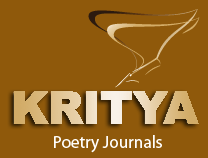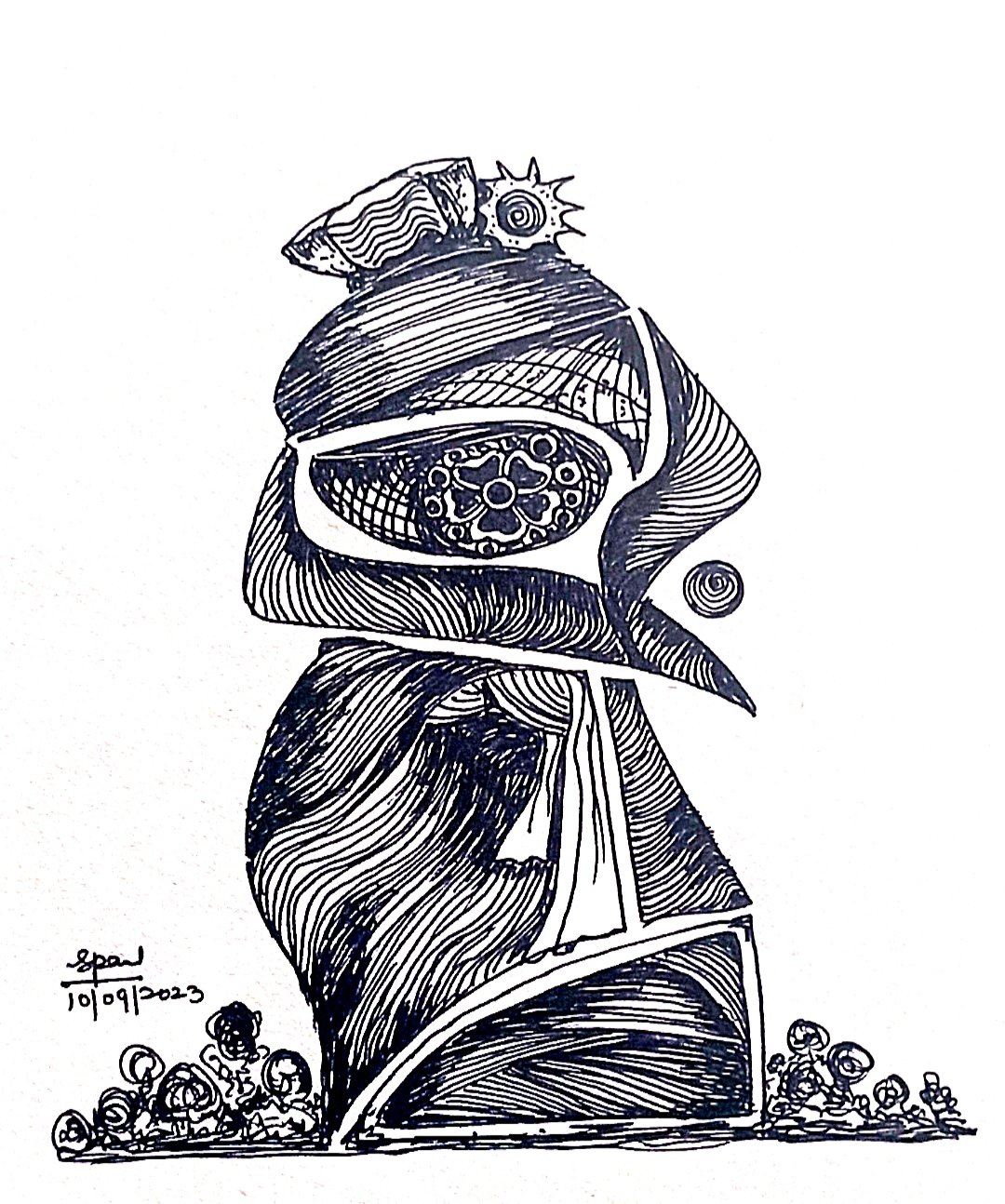
Poetry in Our Time
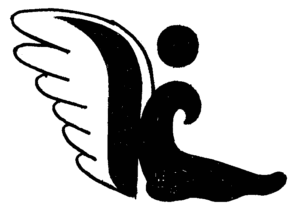
Abhyudita Gautam
Tea Leaves
The last night’s dream steam away from the tea pan,
The swollen sleepy eyes widen to the bubbling hot waters,
Waking up to the world, the nimble hands reach for the tea leaves,
Bottled aroma is inhaled, nostalgia takes over,
Caresses…promises…fragrance…trance…reverie…
The froths of the boiling water outflow from the pan,
The flame extinguishes.
Searching for the lighter, the matchstick….to reignite the fire…
As the thoughts diverted to child’s pending homework..
As the burner lights, the fire lowered, tea leaves dropped,
The colour of water deepens from lighter shades to darker,
Spoonful of white sugary crystals thrown in, adds sweetness ,
Some friends are waiting for a response to join a party today,
As the spices and condiments go in, to tingle the taste buds,
Suddenly the latest grapevine of the workplace sets in,
The piquant leaves dance and twist in the pan,
Milk is poured to cool down temperatures,
Beverage seems all ready to be poured into the cup,
Beige in colour, perfectly brewed
The tea leaves are sieved as the drink flows from the pan,
Drained and left over after the essence is extracted,
The cups are filled with the savour
From the tea gardens, we visited the day before
The first sip infuses heat, rejuvenates,
More follow to wake up our aims, get back to life,
As the leaves are thrown away in the garbage,
Dumped like last night’s fantasies!
Don’t Touch the Mountains
Stay in your skin,
Or we shall peel our own,
As we scratch and dig,
Challenging the mighty,
To climb on and drive through.
These Giants can take no more
Of continuous nudging and burrowing,
Tampering and irking,
Tunneling to cross over,
Mining to extract,
Drowning with dam waters,
Hosing, seeping, hydrating the core,
Softening, weakening, shaking,
Not them but us,
Uprooting ourselves,
With each tree falling,
Burdening them with concrete and charcoal,
Now they thump on us instead,
The roles have changed,
Borne our weight for too long
Are we ready to take theirs on us?
Don’t touch them…. these Mountains…
Let them stand, be stable.
The little Monk with Mumps
The little eight years old ,rust-robed red-cheeked monk,
His cheeks skin-cracked of dry harsh cold
Says “I came to the mountain monastery all by myself”
No one sent him, not even his mom or pa,
His monk uncle claims he was the old monk in his last birth,
Who died on his way buried in an avalanche,
When this little monk was only three , could utter only a few words,
He wished and longed to go back to the monastery
that no one spoke to him about,
He missed his scriptures, his books, and beads of his former life,
He was spiritually elevated they thought
And so sent away to follow the lost path
He remembered the old way to his old monastery
And reached there to live an austere life,
Met boys of his age and felt at home,
His hands did the daily chores,
His little feet climbed the rugged terrain,
Carrying the bundle of sticks on his back,
He marched on the snowy riverside path,
If you think you won’t fall, you won’t’ he said
And one day he got sick with mumps
Feeling intense pain and down with fever,
He wiped the corners of his teary eyes,
Missing his mom and her cosy lap.
Abhyudita Gautam has been working as an Associate Professor of English in the Department of Higher Education of Himachal Pradesh since 2006 and has served in the various colleges of the state and has taught English Literature to graduate and post-graduate classes. She has attained her Master’s Degree in English from Panjab University and Doctorate from Maharaja Agrasen University. She has a publication of an anthology of short stories and poems titled Submerged and Rehabilitated, a book titled A Town Under the Lake, A One Act Play Mohana, a co-edited a poetry book called Traversing Indian Mythos Through Poesy and a critical book on SR Harnot based on her thesis titled A Multi-thematic Analysis of Conventions and Contemporaneity in the Himalayas as Depicted in SR Harnot’s Cats Talk to her credit. Besides Creative Writing she is a keen researcher with many papers in reputed journals.
has been working as an Associate Professor of English in the Department of Higher Education of Himachal Pradesh since 2006 and has served in the various colleges of the state and has taught English Literature to graduate and post-graduate classes. She has attained her Master’s Degree in English from Panjab University and Doctorate from Maharaja Agrasen University. She has a publication of an anthology of short stories and poems titled Submerged and Rehabilitated, a book titled A Town Under the Lake, A One Act Play Mohana, a co-edited a poetry book called Traversing Indian Mythos Through Poesy and a critical book on SR Harnot based on her thesis titled A Multi-thematic Analysis of Conventions and Contemporaneity in the Himalayas as Depicted in SR Harnot’s Cats Talk to her credit. Besides Creative Writing she is a keen researcher with many papers in reputed journals.
Farouk Sesay
DEAR MAHMOUD DARWISH
” The Palestinians are the only
nation in the world that feels with certainty
that today is better than what the days ahead will hold.
Tomorrow always heralds a worse situation.”
Mahmoud Darwish
As children of Palestine choke on phosphorous fumes,
And perish like Owen’s soldiers in “Dulce et Decorum Est,”
What verses might Mahmoud Darwish have composed,
To rebuke humanity, standing in helpless distress?
As the children of Palestine sit amid the rubble,
Their homes and their families are buried while America claps,
What somber inscription might Darwish have inscribed,
To capture the erosion of grace and compassion in the world?
As Israel tempts civilians toward the southern gate,
Only to shatter them to pieces with brutal artillery,
What metaphors might Mahmoud Darwish have woven,
Linking their fate to children lured to the Nazi’s dark holes?
As the children of Palestine cry beneath the debris,
To a world that averts its gaze from its torment,
What tribute could be paid to these heartless men,
Raining death upon children, a grievous indictment?
As the children of Palestine wither from thirst and hunger,
What verses could bring forth a new “Zam Zam” in Gaza’s sand,
As it once flowed for Hagar between Safa and Marwah,
In ancient ages, a divine and sustaining strand?
As the inferno of intifada consumes Palestine’s land,
What hymn of solace might you have composed, Darwish, my dear,
To quell the flames that have turned Palestine into an eternal pyre,
A burning testament to suffering in perpetuate?
And as the Nakba persists, reducing Palestine to ashes,
World leaders stand as silent spectators as Palestine mourns,
What words might have poured forth from your eloquent pen,
To restore a sense of sanity in a world so forlorn?
Darwish, Palestine withers once more, as it did yesterday,
and all we can do is return to your verses,
As a tribute to the enduring spirit of a people in an unyielding plight.
We raise our hands in supplication for their tomorrow to surpass today,
Anything worse than theirs today would make hell
bow down in shame.
A DIRGE FOR AN OPEN GRAVE CALLED GAZA
My poem on Palestine stillborn, never given life,
Like Gazans born to death within the Gaza Strip,
Buried in an open tomb disguised as an open prison.
My poem gasps for breath like infants gassed in Gaza,
The enormity of inhumanity on screens rends my verse,
The leaders’ indifference poisons my well of inspiration.
The cloak of genocide veiled as the right to self-defense
My poem orphaned within the womb of Palestine
Like the children buried beneath hospital rubble,
Like the children imprisoned in Hitler’s gas chambers.
Despair, seeded at Sobibor and Auschwitz decades past,
Hangs in the air, a sinister spectre,
A twisted, never-again refrain echoes through the land,
Like a serpent’s hiss
Proclaiming the end of Gaza and the Palestinian people.
A new final solution cheered in the name of solidarity
“Never again” remains a hollow promise to the otherized.
My muse, heavy-hearted, departs from the carnage,
Seeking a dirge for this open tomb called Gaza.
And a tribute to the unbroken spirit of a broken land left
To the whims of men without souls.
Oumar Farouk Sesay 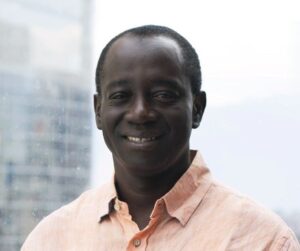 is a Sierra Leonean poet, playwright, and novelist; he has been published extensively. He works in the private sector, and he is the national coordinator of the World Poetry movement.
is a Sierra Leonean poet, playwright, and novelist; he has been published extensively. He works in the private sector, and he is the national coordinator of the World Poetry movement.
Gopal Lahiri
Shadow Line
I often bend down to collect a few footprints,
in the shapelessness of darkness, I see a shadow,
I pluck one to meet myself in a new time,
It is a process I do not want to forget anymore.
At the end of my journey, I always search for
wobbly hands. My mother. The fingers stand like
soft white candles. Each togetherness
calms heart and fills the smell of absence.
She dips her nib in blue ink, catches my whispers,
the glass, the unseen faces, the ancient night
chisel the forgotten alphabets and syllables,
the prayers unheard, gods never arrive at my doorstep.
©gopallahiri
Embrace
This river is my home.
This sunrise is the colour I permeate,
I sip in the morning.
A spoonful of clouds I taste every hour,
I shake a jar and capture the twilight
You can hear ripples becoming sole marks.
Here it is like yesterday, like today and tomorrow,
a red line trembles under my name,
my hands become thinning streams.
I know to sway and sleep with my eyes open,
crossing the platforms of time,
no lights flicker behind the curtain.
You can hear home becomes an embrace,
You can feel that silvery softness.
©gopallahiri
In Memoriam
Under the lampshade, your face glimmers,
your hands are all that protect a family,
friends appear and disappear in time,
tear the veil, summon suspicion.
In the emptiness, flapping your prances
you filter out all the distress and fear,
how complacent, how cozy we are,
look how you linger all around!
You shine vibrantly, keeping us warm
over time, and through the void,
our eternal joy, our life preserver,
you are not there now. Well, so what?
Yor memory splashes in our mind,
gives voice to those without a voice.
©gopallahiri
Poetry
The daylight is winding down,
and I walk on, over the shoulder of the spring.
carrying the chain of my breaths,
down across the narrow road,
I look at the stars, tiny, miniscule, twinkling,
like pincushion holding all of them,
the light blues of their eyes are at the centre.
Poetry will come in silence and claim you now,
A few sentences, a few verses of something
bitter, the alphabet of misery, I test it live.
I know you are now emptiness; you are air.
my hands are on your invisible shoulder,
All is visible and all intangible,
This is what poetry is like.
©gopallahiri
Gopal Lahiri 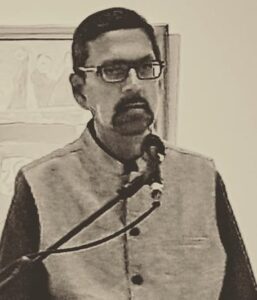 is a bilingual poet, critic, editor, writer and translator with 29 books published, including eight solo/jointly edited books. His poetry and prose are published across more than seventy journals and anthologies globally. His poems are translated in 16 languages. He has been nominated for Pushcart Prize for poetry in 2021. He has received Setu Excellence Award, Pittsburgh, US, in poetry. Recent Credits: Borderless Journal, Shot Glass Journal, Erato, Indian Literature, Kitaab, Poetry Breakfast, Confluence, Words and Worlds, Dreich, Converse, and elsewhere.
is a bilingual poet, critic, editor, writer and translator with 29 books published, including eight solo/jointly edited books. His poetry and prose are published across more than seventy journals and anthologies globally. His poems are translated in 16 languages. He has been nominated for Pushcart Prize for poetry in 2021. He has received Setu Excellence Award, Pittsburgh, US, in poetry. Recent Credits: Borderless Journal, Shot Glass Journal, Erato, Indian Literature, Kitaab, Poetry Breakfast, Confluence, Words and Worlds, Dreich, Converse, and elsewhere.
